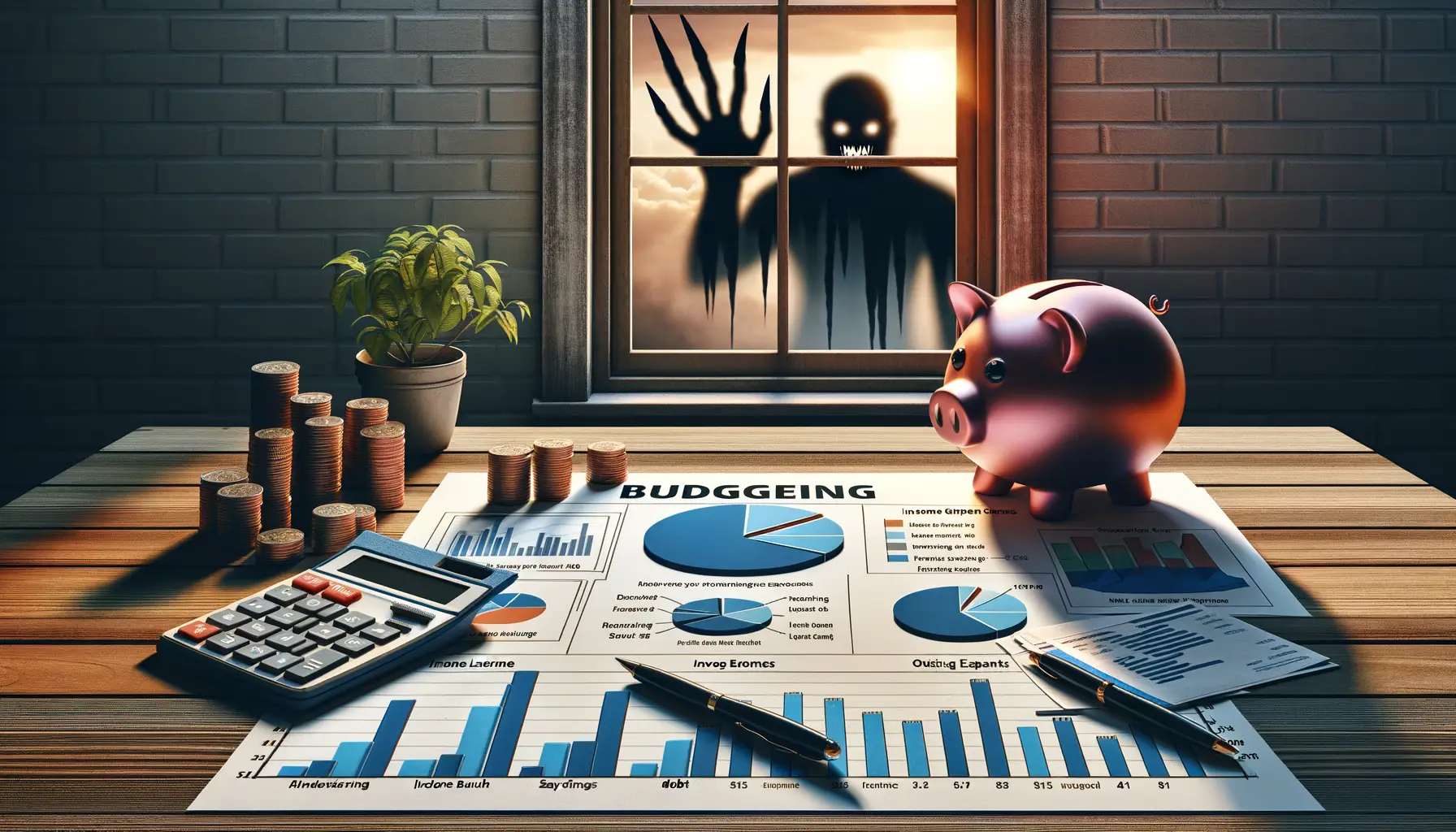Understanding Debt and Its Impact on Your Life
How Debt Sneaks Into Every Corner of Life
Debt isn’t just about numbers on a statement; it’s like that uninvited guest who overstays their welcome, creeping into places it doesn’t belong. It can stir up sleepless nights, wrap you in a constant cloud of anxiety, and even strain your relationships. You might find yourself skipping dinner with friends because you’re secretly stressing over that hefty credit card balance. Or maybe you’ve hesitated to open the mailbox, fearing another bill will pounce out like a bad surprise.
What makes debt particularly cunning is how it seeps into your emotions. It’s not just money owed—it can feel like a weight pressing on your chest. Financial guilt? That comes free with every overdue notice. And yet, you’re not alone. Did you know that 64% of Americans say debt makes them lose sleep? If you’ve felt this way, it’s not a flaw in your character; it’s a shared burden millions are carrying.
- You might feel stuck deciding between paying off debt or building savings.
- High-interest rates can make repayment seem endless.
- Debt often limits dreams, like buying a home or planning a vacation.
But here’s the thing—this isn’t your forever story. Understanding the true toll of debt is the first step toward rewriting it.
Practical Steps to Manage Debt Effectively

Tackle Your Debt One Step at a Time
Managing debt can feel like wrestling a giant octopus—every time you think you’ve handled one arm, another wraps around you. But here’s the truth: with consistent steps and a pinch of strategy, you can loosen its grip.
Start by grabbing a pen and paper (yes, old-school style works wonders!) and listing every single debt you owe. From the credit card with the sky-high interest to that store card you barely use—write it all down. Seeing the full picture might feel overwhelming, but it’s also empowering.
Next, focus on prioritizing. Ask yourself: which debt is draining you the most? Often, it’s the one with the highest interest. Tackling this first will save you money in the long run. Here’s a quick tip: consider using the avalanche approach (paying off high-interest debts first) or the snowball method (starting with the smallest balance for emotional wins).
- Set small, bite-sized goals—paying off an extra $50 this month counts!
- Redirect “found” money like tax refunds or bonuses toward your debt.
- Track your progress weekly—it’s like watching your personal victory parade unfold.
Befriend Your Budget
Think of budgeting as a map guiding you out of a financial maze. Start with your essentials: housing, utilities, groceries. Then, carve out an amount dedicated to debt repayment. Automating these payments can be your secret weapon—letting technology take the reins so you aren’t tempted to spend elsewhere.
Whenever possible, scan your spending habits under a microscope. Subscriptions you forgot about? Meals ordered too frequently? Every cut you make redirects precious dollars back where they belong. And remember, this isn’t forever—just until you break free from debt’s grip.
Strategies for Long-Term Debt Reduction

Breaking Free from the Debt Cycle
Does it feel like debt has shackled you to an endless treadmill? You’re not alone, but here’s the truth: long-term debt reduction isn’t about quick fixes—it’s about having a solid plan and the patience to see it through. Let’s roll up our sleeves and dive into some game-changing strategies.
First, tackle those **pesky high-interest debts** with laser focus. These are like weeds in your financial garden, choking out everything else. The snowball method (paying off smallest debts first for momentum) or avalanche method (targeting highest interest rates) can help trim them down.
Now, consider renegotiating terms. Why let old agreements dictate your present? **Refinancing loans**, negotiating lower interest rates, or consolidating debts can simplify payments and lower stress. A single, manageable payment is often easier to handle than juggling five!
Turning Small Changes Into Big Wins
Here’s where creativity kicks in. Imagine saving $200 a month by skipping premium coffee and subscription services. Over time, that money could slash a chunk of debt!
Use tools that automate your progress:
- Set up autopay to avoid costly late fees.
- Use apps like Mint or YNAB to track spending effortlessly.
Finally, celebrate small victories. Every dollar paid down is a step closer to freedom. Keep at it—you’ve got this!
The Role of Budgeting and Saving in Debt Management

Mastering Money: Why Budgeting is a Superpower
Imagine your finances as a leaky bucket. Every paycheck pours in, but without a plan, it trickles away—subscriptions here, impulse buys there. Sound familiar? Budgeting is the duct tape that stops those leaks, giving you control over where every dollar goes. Think of it as your personal road map to freedom. With a budget, you’re not just scraping by; you’re making purposeful decisions.
Break it down like this:
- Start with your essentials—rent, groceries, bills. These are non-negotiables.
- Add “flexible spending”—the fun stuff like takeout or splurging on coffee, but within limits.
- Finally, prioritize debt payments and savings. Yes, even saving a tiny amount counts!
Saving: Your Safety Harness for the Unexpected
Ever had an unexpected car repair or medical bill knock you off balance? That’s where saving plays superhero. It won’t solve debt overnight, but it cushions the blows life throws at you, preventing deeper spirals into borrowing. Picture this: setting aside even $20 a week can grow into $1,000 in just one year. Not bad, right?
Here’s a twist—saving doesn’t mean deprivation. It’s about swapping short-term wants for long-term wins. Brew coffee at home, cancel unused memberships, or set automatic transfers into a separate savings account. Little sacrifices today become big opportunities tomorrow.
Seeking Professional Help and Additional Resources

Why an Expert Could Be Your Game-Changer
Sometimes, managing debt can feel like wrestling with an octopus—just when you think you’ve got one tentacle under control, another one slips free. If this sounds familiar, it might be time to call in the pros. Financial advisors and debt counselors are like personal trainers for your finances. They don’t just hand you a cookie-cutter solution; instead, they craft a customized plan that fits your unique circumstances, whether that’s consolidating debt, negotiating with creditors, or simply helping you stay on track.
Reputable professionals can also open doors to resources you didn’t even know existed. Imagine learning about grants, forgiveness programs, or low-interest repayment plans that could ease your financial strain! But remember, not all help is created equal—always research credentials and reviews before diving in.
Where to Find the Help You Need
Here’s where things get exciting: there are numerous resources out there, many of them free or low-cost! A few places to start include:
- Nonprofit credit counseling agencies: These organizations offer expert guidance without breaking the bank.
- Online budgeting tools: Platforms like Mint or YNAB (You Need A Budget) can revolutionize how you track spending.
- Local community programs: Many cities offer financial literacy workshops or debt relief initiatives tailored to residents.
Don’t underestimate the power of asking for help. Sometimes, just having someone walk alongside you can make an overwhelming journey feel manageable—and dare I say it—hopeful.
